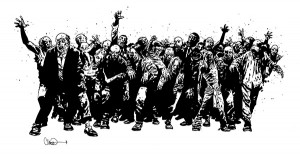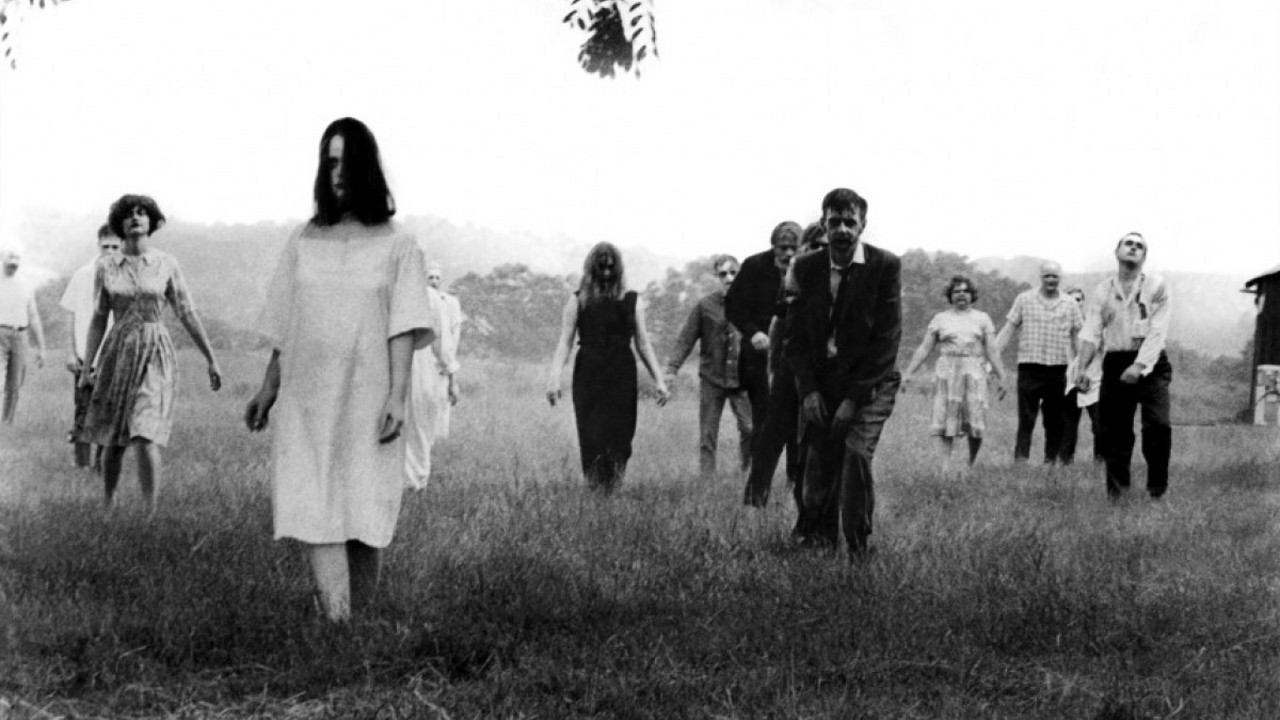By guest reviewer Diana Taibi
 January is the new October: that season when you can’t get away from horror films. Over the past few years, zombies have become particularly in style, which has thrilled me. Well, in many cases it has, while in others it has been disappointing. Oddly, two of the greatest disappointments were delivered by the zombie master himself – George Romero. Don’t be dissuaded by Diary of the Dead and Survival of the Dead. The first three Romero zombie films are excellent (and the fourth is okay), offering a variety of social commentary with artistry that the latter three films lack.
January is the new October: that season when you can’t get away from horror films. Over the past few years, zombies have become particularly in style, which has thrilled me. Well, in many cases it has, while in others it has been disappointing. Oddly, two of the greatest disappointments were delivered by the zombie master himself – George Romero. Don’t be dissuaded by Diary of the Dead and Survival of the Dead. The first three Romero zombie films are excellent (and the fourth is okay), offering a variety of social commentary with artistry that the latter three films lack.
As Warm Bodies heats up theaters last weekend and The Walking Dead shambles back onto the small screen this coming Sunday to continue its third season, it’s timely to share some thoughts on Romero’s works. My hope is that the reader will take a deeper look at this genre and what it can be used to represent about humanity, identity, and society. Various horror genres comment on spiritually-related matters: vampire films address taboos (especially sexuality), body-snatchers films deal with autonomy, and slasher flicks often show punishment of moral error. But zombie films hit closest to the core of what it means to be human. While I believe we were created to live in the physical world, in our bodies, as image bearers of God, zombie films comment on the human condition by showing the opposite of this.
 The ultimate fulfillment of being made in God’s image occurs at the glorious appearing of Jesus. When Jesus returns, “we shall be like him, for we shall see him as he is” (1 John 3:2). This blessed hope of the Christian is that we will be raised from the dead through the power of Christ (1 Corinthians 15:35-49) to live with God forever. The zombie film is an inversion of the blessed hope. Zombies represent resurrection leading to loss of identity, a rotting body, and a desire to devour creation rather than redeem it from sin. This perspective on the genre offers much to contemplate from a spiritual perspective. It is my hope that these reviews of the Romero films will help you delve into spiritual issues as you enjoy a good scare along the way. (The review includes spoilers)
The ultimate fulfillment of being made in God’s image occurs at the glorious appearing of Jesus. When Jesus returns, “we shall be like him, for we shall see him as he is” (1 John 3:2). This blessed hope of the Christian is that we will be raised from the dead through the power of Christ (1 Corinthians 15:35-49) to live with God forever. The zombie film is an inversion of the blessed hope. Zombies represent resurrection leading to loss of identity, a rotting body, and a desire to devour creation rather than redeem it from sin. This perspective on the genre offers much to contemplate from a spiritual perspective. It is my hope that these reviews of the Romero films will help you delve into spiritual issues as you enjoy a good scare along the way. (The review includes spoilers)
Night of the Living Dead
Romero’s groundbreaking 1968 film begins with a brother and sister visiting their parents’ graves. These two are attacked by the first zombie of the film. The brother is killed, and the sister flees to an empty farmhouse. Others take refuge in the house: a single man, a family, and a young couple. The group unsuccessfully attempts to escape. Eventually, all except the single man are killed by one another, become zombies, or are killed by the zombies.
 When I first saw this film several years ago, I failed to appreciate just how shocking it was in terms of both gore and social issues. The film rebelled against racism by casting an African American lead (the single man), which was a bold decision in the 1960s. The film also accentuated the disintegration of the American family. The brother and sister at the beginning are antagonistic, and the sister is eventually killed by her brother who returns as a zombie.
When I first saw this film several years ago, I failed to appreciate just how shocking it was in terms of both gore and social issues. The film rebelled against racism by casting an African American lead (the single man), which was a bold decision in the 1960s. The film also accentuated the disintegration of the American family. The brother and sister at the beginning are antagonistic, and the sister is eventually killed by her brother who returns as a zombie.
The family in the farmhouse is intolerable, particularly the father, who is a bully and a coward. The mother is killed and the father eaten by their young daughter who quietly dies and becomes a zombie. As pointed out by film critic Robin Wood, this conclusion seems to be a condemnation of the dysfunctional American family unit. Though Mr. Wood argues for a more liberal family definition, I would argue the Bible gives us a better way, showing relationships built on courage and mutual respect (Ephesians 5:22-6:4).
Finally, the film deals with social order. In the end, the sheriff’s posse restores the status quo, even at the expense of killing the sole survivor. The conclusion raises the question: at what cost to we seek a peaceful, comfortable existence? In a sense, the zombies and the posse are alike. They will destroy anything in their way to create the world they desire.
-
Do we devour our world, or are we interested in what our Creator wants it to be?
“Every way of man is right in his own eyes, but the Lord weighs the heart. To do righteousness and justice is more acceptable to the Lord than sacrifice.”
– Proverbs 21:2-3
A decade later, it would “Dawn” on Romero to revisit the dead with my favorite film in the zombie genre…

